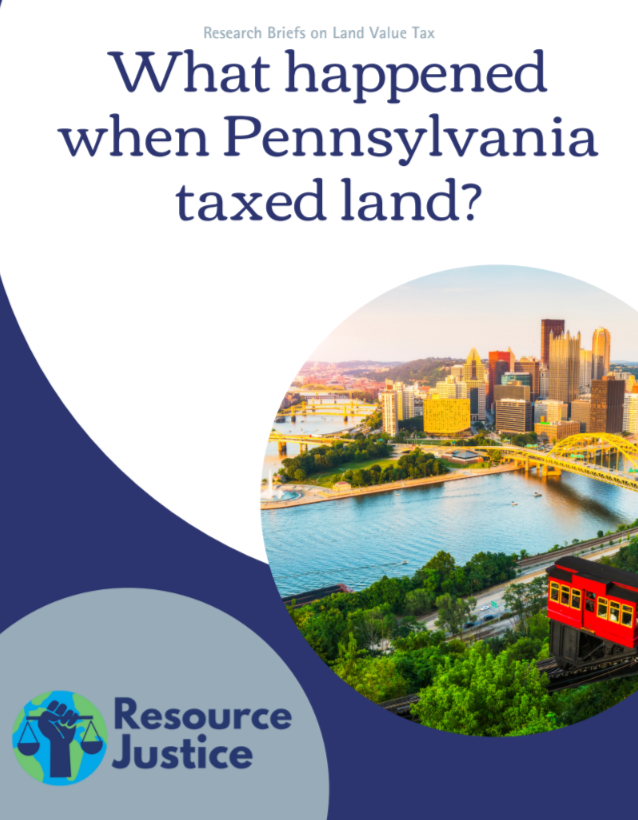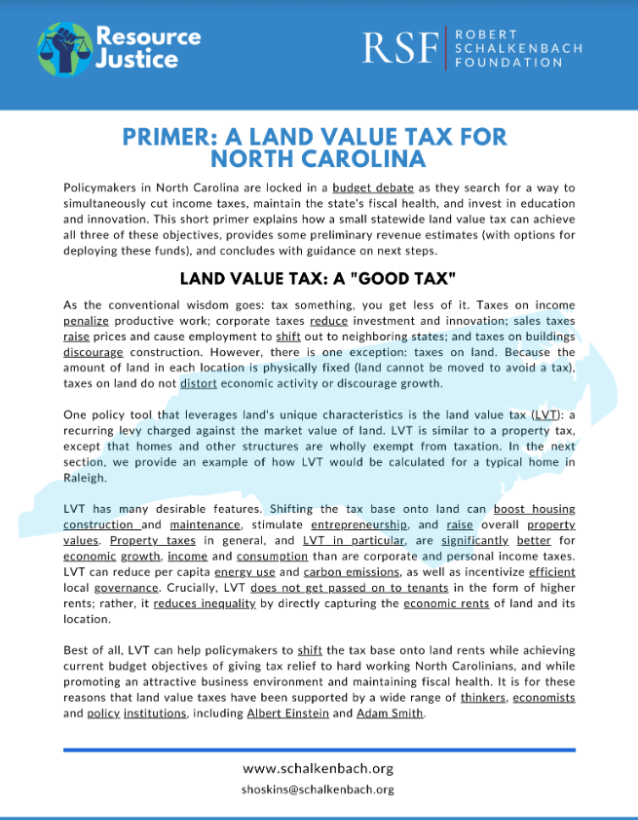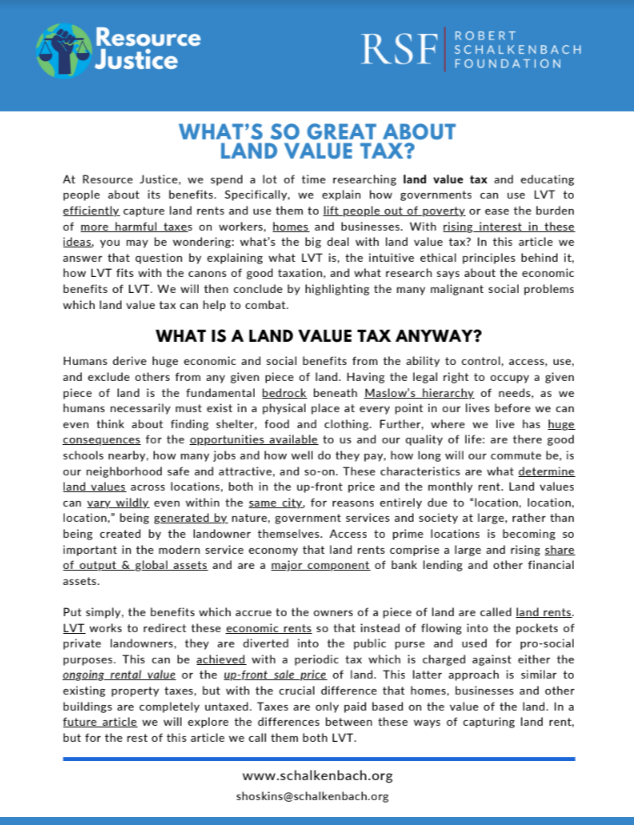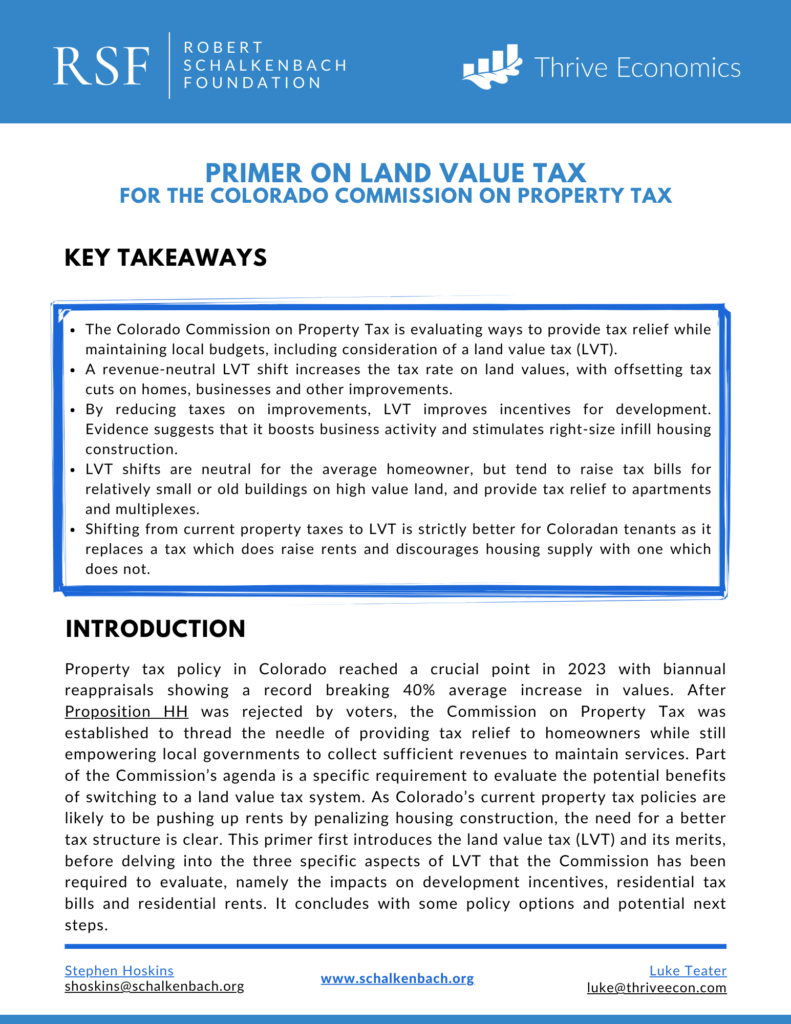LVT Toolkit

Proposals to implement land value taxes often face resistance from folks concerned that landlords will simply pass the tax on to tenants by increasing rents. In this brief we explore the theory and evidence on where the burden of LVT falls, and suggest pathways to further research on this important question.

In this article, we therefore conduct a thorough review of the rigorous empirical studies into LVT in Pennsylvania, to find out what the data tells us about the effects of shifting municipal taxes onto land. We find that LVT shifts in PA produced clear and consistent benefits: increased
construction of housing and office buildings, less sprawl, more businesses, and higher property values overall.

Policymakers in North Carolina are locked in a budget debate as they search for a way to simultaneously cut income taxes, maintain the state’s fiscal health, and invest in education and innovation. This short primer explains how a small statewide land value tax can achieve all three of these objectives, provides some preliminary revenue estimates (with options for deploying these funds), and concludes with guidance on next steps.

In this article we explain what land value tax (LVT) is, the intuitive ethical principles behind it, how LVT fits with the canons of good taxation, and what research says about the economic benefits of LVT. We will then conclude by highlighting the many malignant social problems which land value tax can help to combat.

Property tax policy in Colorado reached a crucial point in 2023 with biannual reappraisals showing a record breaking 40% average increase in values. After Proposition HH was rejected by voters, the Commission on Property Tax was established to thread the needle of providing tax relief to homeowners while still empowering local governments to collect sufficient revenues to maintain service. Read more about the Commission’s agenda and their consideration of an LVT.
